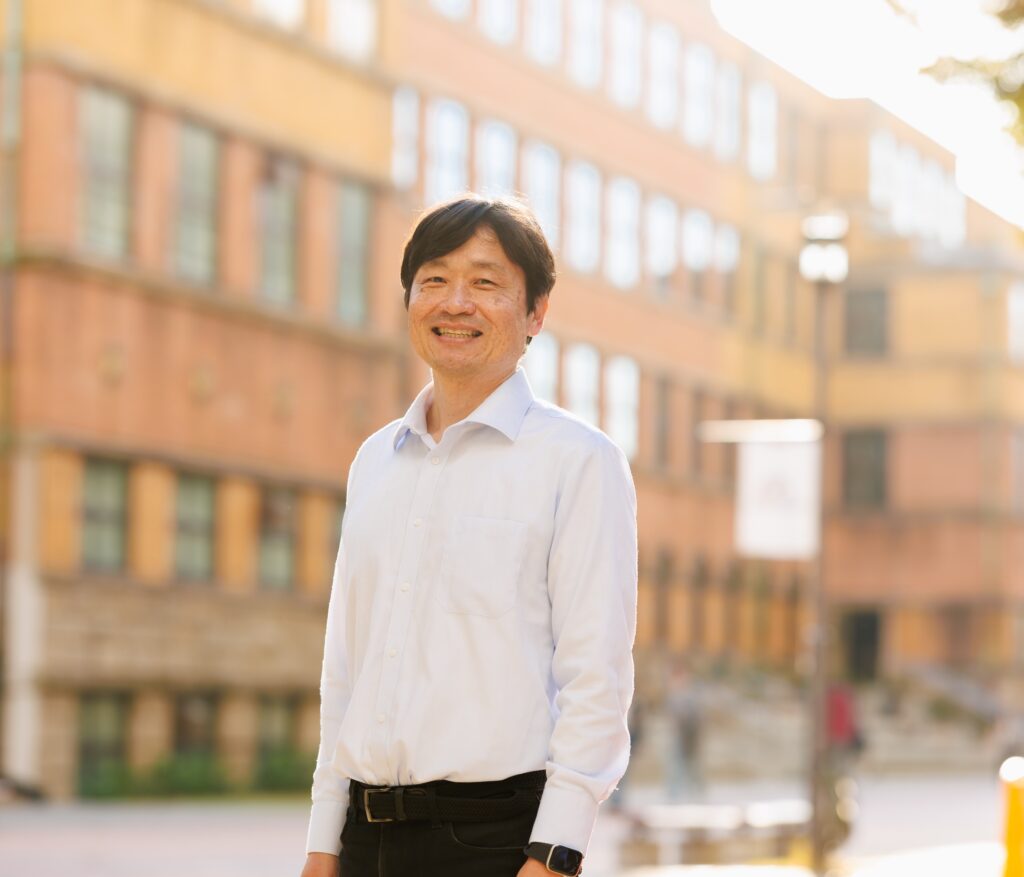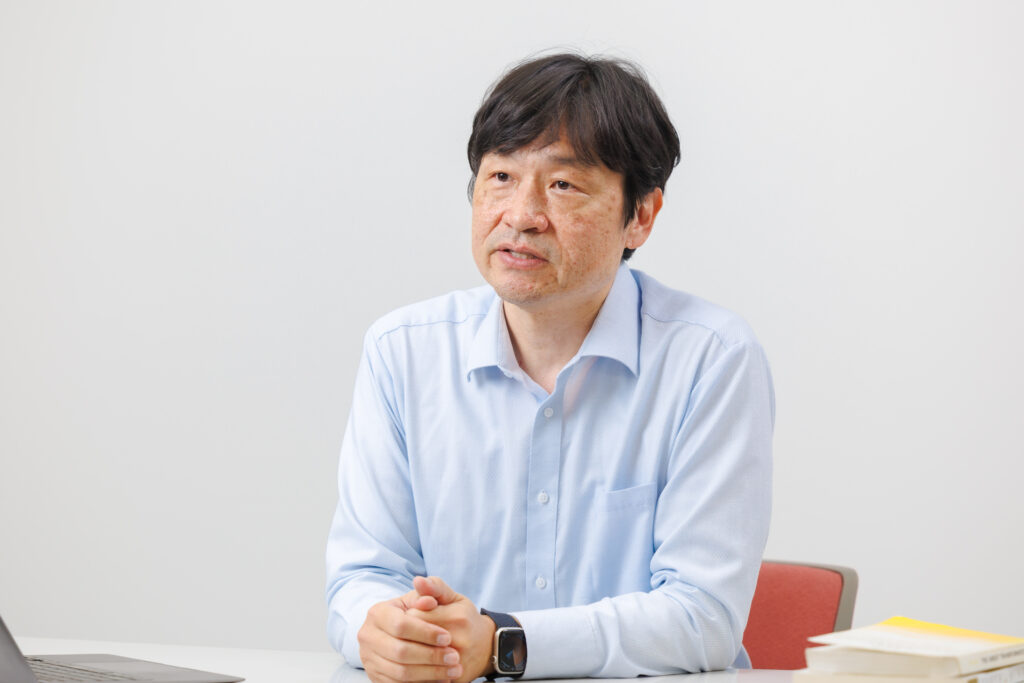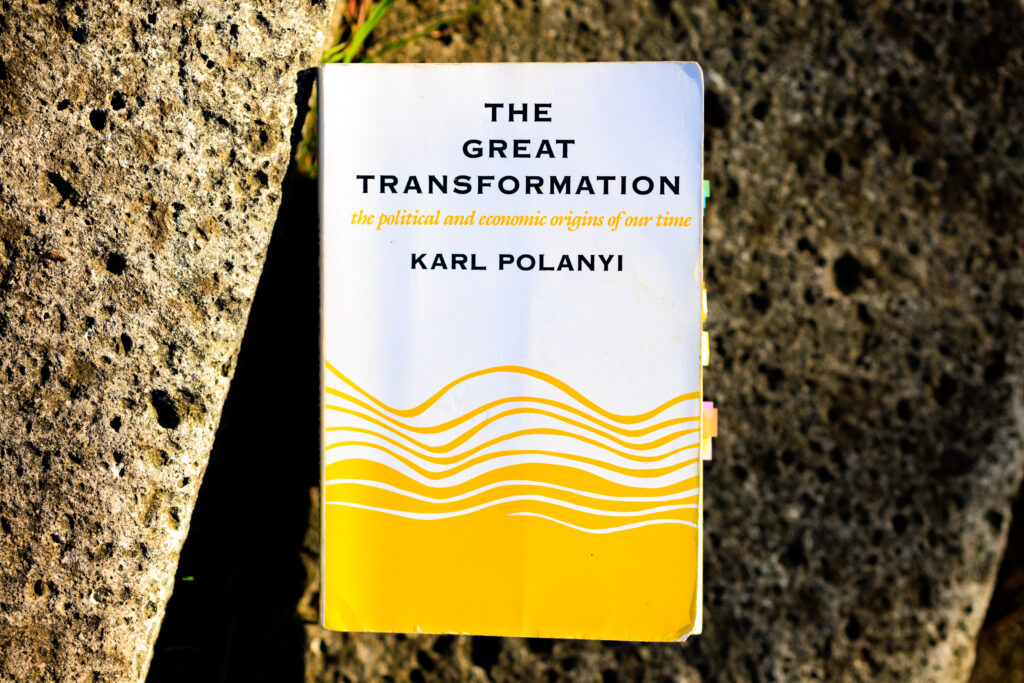
Professor Takeshi Ito of the Faculty of Liberal Arts specializes in political economy and political ecology. His work is informed by broad interests in agrarian and environmental change. He explores these themes through a multi-disciplinary perspective that enables him to understand the complexity and diversity of social-ecological interactions that shape human wellbeing and environmental integrity.
Placing non-human actors at center stage in thinking about justice sustainability
Because I have a background in political economy and political ecology, I am interested in understanding how political dynamics influence the global-local distribution of natural resources, with a focus on social-environmental justice and sustainability.
In one of my research projects, I examine the entwined processes of “economic offshoring” and “environmental offshoring” within global supply chains, where home governments extend economic and environmental governance beyond their borders to secure nature as a resource and manage nature as a hazard through trade, investment, and aid.
The offshore relocation of corporate production activities, significantly influenced by geopolitics and state policies, has both positive and negative impacts on local economies, societies, and ecologies. In East and Southeast Asia, growing economic and environmental connectivity between sites of production and consumption led to economic development, poverty reduction, resource depletion, river closures, air and water pollution as well as increased vulnerability to natural disasters.
This is a joint research project with Prof. Carl Middleton of Chulalongkorn University in Thailand. This research seeks to re-narrate the development of growing connectivity in East Asia by drawing out the role of “non-human actors” in major environmental events such as disasters. A non-human perspective employed in this research will contribute to understanding economic, environmental and disaster governance, including the underpinning principles of justice and sustainability.
Ensuring the sustainability of both human and non-human species

I am also conducting research on salmon—e.g., their histories, ecologies, and political role. In this research I ask, “why did salmon change from being something we catch to something we raise?” I share some of my findings in my lecture for all Sophia first-year students. Changes in consumption patterns in Japan from cooked to raw salmon have reshaped concerns within the industry. Recognized as a political commodity, salmon embodies dual roles—both as a commodity in the global food economy and as a keystone species essential for ecosystem stability. In class, students study some hints as to how humans can live in harmony with non-human species—i.e., animals, plants, and the natural environment.
My third research project addresses the crucial issue of food systems—how humans’ subsistence activities can make positive contributions to the environment. Globally, the agricultural sector suffers from the lack of “generational renewal;” young people who are usually more educated than their parents do not find farming as an attractive job, exacerbating the problem of finding successors for the aging population of farmers.
In rural areas in Asia, the dominance of large-scale monocropping plantations cultivating cash crops such as corn, palm oil, rubber, tea, coffee, and sugar for exports, poses another threat to smallholding farmers and local food security. On the one hand, the global food system has promoted industrial agriculture and increased food production levels by using fossil fuels in powering machines and producing pesticides and herbicides, synthetic fertilizers in promoting plant growth, and antibiotics in controlling diseases among domesticated animals. On the other, the global food system has made farming unattractive for people who aspire to be farmers and degraded the soil, water, plants and animals. In Japan, policies that promoted the global food system led to food insecurity, urban concentration, rural depopulation, and the erosion of satoyama landscapes.
Drawing evidence from fieldwork in rural Japan, this research aims to explore how various actors from different sectors work together and tackle the challenge of making food systems more just and sustainable.
Engaging students in real-world issues beyond the classroom
I am a passionate teacher who firmly believes that education can play an important role in addressing urgent public issues and creating a socially and environmentally just and sustainable world. Teaching young minds is rewarding for teachers, yet conveying abstract theories in the classroom often fails to resonate with students. I’ve been thinking about how college education can provide students with life-long knowledge that prepares them to lead a meaningful life during and beyond their time in college. I’ve felt that engaging students in real-world issues poses challenges, highlighting the struggle to make education relevant and prepare students for meaningful lives. This question extends beyond the classroom, emphasizing the pivotal role education can play in addressing challenges to human well-being and ecological integrity.
In search of any meaningful answers, I’ve been working with some interested undergraduate and graduate students from KASA Sustainability on sustainability issues and teaching a field-based seminar on environmental studies. I aspire to cultivate students’ senses and help them become close and astute environmental observers beyond the confines of teaching abstract theories in the classroom.
The book I recommend
“The Great Transformation: The Political and Economic Origins of Our Time”
By Karl Polanyi, published by Beacon Press

This groundbreaking book was one of the most influential books I read in graduate school, introducing whole new perspectives to a political science graduate student. Polanyi emphasizes underappreciated values such as reciprocity and collaboration that have traditionally promoted social and economic exchanges. Today, these values are still and perhaps more relevant for us who live in another great transformative moment in the twenty-first century.
-
Takeshi Ito
- Professor of Political Science
Department of Liberal Arts
Faculty of Liberal Arts
- Professor of Political Science
-
Takeshi Ito received his M.A., M.Phil., and Ph.D. in Political Science from Yale University. After teaching at Colorado College, he started working at Sophia University in 2012 and was promoted to full professor in 2021.
- Department of Liberal Arts
Interviewed: November 2023